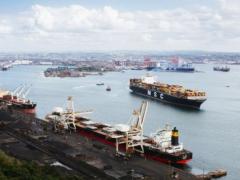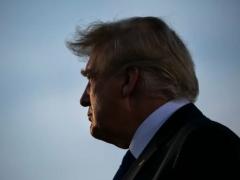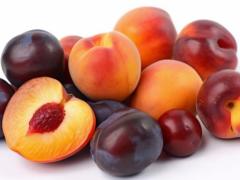South Africa’s efforts to negotiate a reduced tariff with the United States have failed, leaving exporters facing a 30% unilateral tariff on all goods, effective on August 7.
In response, the government is implementing measures, including relaxing competition laws, to help exporters mitigate the economic fallout, the departments of international relations and cooperation and (Dirco) trade industry and competition (dtic) announced during a media briefing on Monday. Dirco Minister Ronald Lamola read out a joint statement which highlighted the efforts the government had made “to stabilise and enhance mutually beneficial trade and investment relations with the US” since the start of the Seventh Administration.
However, Lamola said, despite South Africa submitting “a comprehensive and ambitious” Framework Deal to address trade concerns in May, the US had decided to impose the unilateral tariff.
The Executive Order published by the US clarifies that goods loaded onto a vessel at the port of loading and in transit on the final mode of transit before 12:01am Eastern Daylight Time on August 8, and entered for consumption, or withdrawn from warehouse for consumption, before 12:01am Eastern Daylight Time on October 5, shall not be subject to the additional duty and shall instead remain subject to the 10% tariff.
“South Africa isn't just a trading partner – we're a major investor in the US, with our companies sustaining American jobs. Similarly, over 600 US companies in South Africa contribute to our industrial growth and create employment. Our goal is to preserve and grow these mutually beneficial relationships,” Lamola said.
“The uncertainty of the new tariff line is already incorporated into economic projections. For example, various economists have estimated that it may shave 0.2% off South Africa’s economic growth. The reduction in growth from the 30% tariff depends on a number of factors, including our ability to find alternative markets,” he said.
“It should be noted that 35% of SA exports remain exempt from the tariffs. All applicable exceptions published in the previous US Executive Order are set to remain in force, and these exceptions cover products such as copper, pharmaceuticals, semiconductors, lumber articles, certain critical minerals, stainless steel scrap and energy and energy products.
“We will continue to use all available diplomatic channels to negotiate a mutually beneficial trade deal with the US, one that respects our national interests while advancing our long-standing partnership. Such a deal will be pursued in a pragmatic manner that preserves regional integration and the Sacu (Southern African Customs Union) common external tariff, noting that Sacu accounts for 9% of our global exports and must be preserved,” Lamola said.
He added that the government was working with industry to consider aspects of the Framework Deal that can be modified to promote trade predictability.
Lamola said the government would introduce a “Block Exemption” to the Competition Act for exporters. A draft Block Exemption will be published by the end of the week.
“The diversification of markets that will be required following the introduction of additional tariffs on South African goods may require exporters to coordinate their activities in relation to developing joint infrastructure for exports, sharing market information and coordinating activities to achieve economies of scale and efficiencies that enable them to be competitive,” Lamola added.
Lamola said the government was also implementing an Economic Response Package to support exporters. This includes an Export Support Desk to serve as a direct point of contact for companies affected by the US tariff hike, offering “tailored advisory services to exporters on alternative destinations, guidance on market entry processes, insights into compliance requirements and linkages” to embassies abroad.
The government is working on measures to assist companies in absorbing the tariff and to facilitate long-term resilience and growth strategies to protect jobs and productive capacity.
“The details of these are being finalised and will be communicated shortly,” Lamola said.
The Localisation Fund Support (LSF) is ready to support companies impacted by the tariffs and will issue an open call for firms in affected value chains to provide targeted competitiveness and efficiency support.
“To build resilience, we are working on an Export and Competitiveness Support Programme (ECSP), which will include a working capital facility and plant and equipment facility to address short- to medium-term needs across all industries.
“We are also working with the Department of (Employment and) Labour on measures to mitigate potential job losses, using existing instruments within its entities that can be adjusted to respond to the current challenges.”
Lamola said the government had been strengthening trade and investment partnerships with trade partners.
“These efforts are bearing fruit, targeting markets across Africa, as well as in Asia, Europe, the Middle East and Americas. Our announcement on the Clean Trade and Investment Partnership with the European Union in March has unlocked a R90 billion investment package that has been initially committed,” he said.
“This partnership also aims to unlock new market access opportunities for South Africa, including the export of sustainable aviation fuel by Sasol and the export of hybrids and electric vehicles.
“While facing global trade challenges, South Africa is proactively building a more resilient agricultural sector. We've made significant progress in opening up vast new markets like China and Thailand, securing vital protocols for products like citrus and others. With China alone being a $200 billion market, we are confidently expanding our reach and creating new opportunities for our agricultural producers.”
He said the country was also “making significant inroads into new high-growth markets across Asia and the Middle East, including the UAE, Qatar and Saudi Arabia”.
Trade and investment packages with countries, including Japan, aim to unlock new market access opportunities.
“While the current measures present challenges, they also present opportunities to build and accelerate the implementation of the AfCFTA and to develop new partnerships in markets that have remained untapped,” he said.













